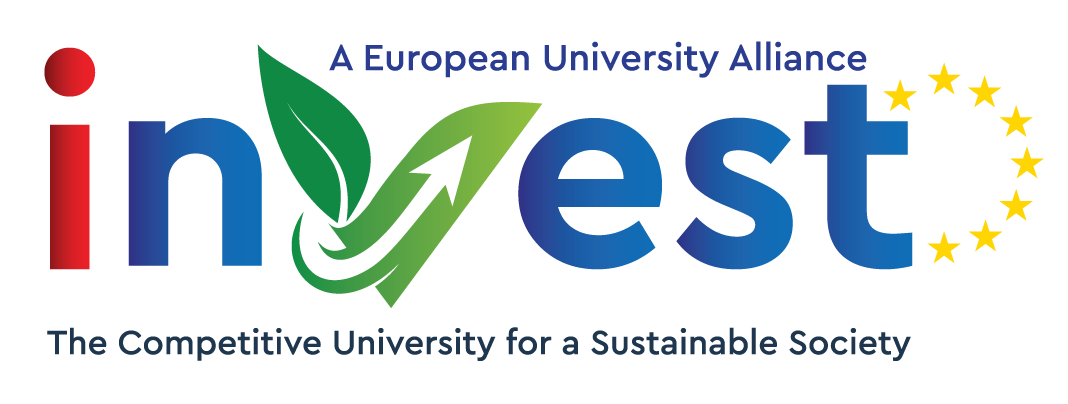STRUCTURAL PERSPECTIVE

Structural perspective
INVEST’s structure enables joint delivery of services, shared data, and seamless links between education, research, innovation, and infrastructure. Cooperation spans the following domains:
- Governance – joint mission, structure and bodies, staff development.
- Studies – academic calendars; ECTS and grading alignment; programmes and courses; admissions; recognition of prior and experiential learning.
- Science, Research & Development – collaborative projects; shared research centres; complementary Living Labs; scientific events and publications.
- International Relations & Mobility – coordinated international office; student and staff mobility (physical, blended, virtual); winter/summer schools; traineeships and research visits.
- Projects & Events – central projects unit; alliance-wide events hub; press, publishing and dissemination.
- Career & Employment – enterprise partnerships and clusters; internships and scholarships; counselling and support; alumni network and digital platforms.
- Virtual Campus – unified digital environment (information hub, e-application tools, e-learning, collaboration and community tools, shared repository).
- Quality Assurance & Accreditation – alliance QA policy, QA manual, processes and guidelines aligned with European standards; continuous monitoring and enhancement.
Financial perspective. Sustainability is supported by a cooperation model that may include membership agreements and fees, financial rules for Virtual Campus operation and maintenance, a dedicated sponsorship/donations fund, and pursuit of additional project and competitive funding.
Governance structure
A common governance system manages, administers, and steers decision-making during the project and beyond:
- Rectors’ Assembly (RA) – the supreme governing body for study, education and research; composed of partner rectors (or delegated vice-rectors). Chaired on a rotating basis.
- Steering Committee Board (Management Board) – control and executive body mediating between the Rectors’ Assembly and executive boards; composed of WP delegates (local coordinators or appointed experts) from each partner; submits proposals for RA approval and oversees implementation.
- Academic Board – executive board for education and study affairs (programmes, mobility, Living Labs); includes student representatives with shared decision-making responsibilities.
- Research & Innovation Board – executive board for excellent research, RDI collaboration and Centre of Excellence actions.
- Quality Assurance Board – monitors and evaluates alliance activities, procedures and outcomes; advises RA/Steering Committee on continuous improvement.
- Stakeholder Committee – engages regional ecosystems (public sector, business, civil society) to align actions with real needs and amplify impact.
- Student Board – ensures structured student participation in implementation and decision processes across education, mobility and community activities.
- Project Coordinator – mediates between the Rectors’ Assembly, local coordinators and boards; ensures planning, monitoring, reporting and financial management.
- Project Local Coordinators – contact points at each partner, responsible for local implementation and coordination.
- Technical–Administrative Units – operational teams at each partner providing day-to-day technical and administrative support to all boards.
- Consortium Advisory Panel (IAP) – distinguished experts (scientific, educational, administrative) who observe, advise and support high-quality, timely delivery.

Academic Board (institutional focus)
While the Steering Committee/Management Board carries organizational responsibility, the Academic Board is pivotal at institutional level. It manages study affairs for incoming and outgoing students, coordinates the Virtual Campus as the core tool for study operations, and opens participation for staff and students in developing common degrees and courses (including lifelong learning), mobility schemes, and teaching/learning materials.

